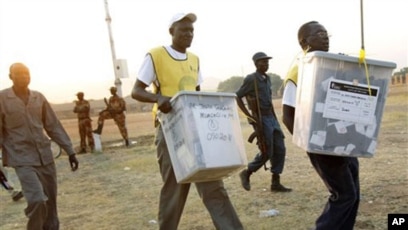By Mamer Abraham
Government spokesperson, Michael Makuei Lueth, has reiterated that the 2024 elections cannot fail.
Addressing journalists at the Ministry on Friday, Makuei noted clearly that conditions such as the census, the permanent constitution, and the repatriation of refugees had alternatives.
The information minister maintained that the country would use the 2010 constituencies and the repatriation of refugees as voluntary.
He said the permanent constitution should be completed later by the newly elected parliament, adding that the current members of parliament were not all elected.
“We are going for elections. If there are any descending voices, then we will see what they are. The agreement doesn’t say that everything must be done by consensus. It says that it should be done by consensus; in the absence of consensus, then by majority vote,” he explained.
Makue said that the main objective and target of the agreement are elections.
“And if implementation of some of these provisions is being obstructed in some way or another, so that we don’t go for elections, this is what we don’t accept,” he stressed.
He said the government was not ready for a further roadmap or extension of the transitional period unless the people of South Sudan did not want to decide on whom to lead them.
Last week, the deputy chairman of SPLM-IO, Nathaniel Oyet Pierino, told the press that the provisions in the agreement should all be implemented for the country to go to the polls.
“The tasks that we have highlighted are in agreement. The national election is in agreement. We expect the permanent constitution to be in place. The census to be in place, the repatriation, and the resettlement of IDPs. The reforms: the security arrangements to be done,” Oyet stated.
“How can you hold elections without security arrangements? Without a census, how will you know the figures? How will you define the boundaries? The election will not proceed under normal terms,” Oyet added.
He continued that they would not be tired of knocking on the doors of the peace monitoring bodies to ensure that the peace agreement transitions in good faith.
According to the roadmap for the extension of the transitional period, the election will be conducted on December 22, 2024, and the transitional period will end on February 22, 2025.
But currently, the peace monitoring bodies, and civil society are concerned that the remaining 15 months must be properly utilized so that elections take place, as RJMEC said the implementation of the peace agreement was slow.




